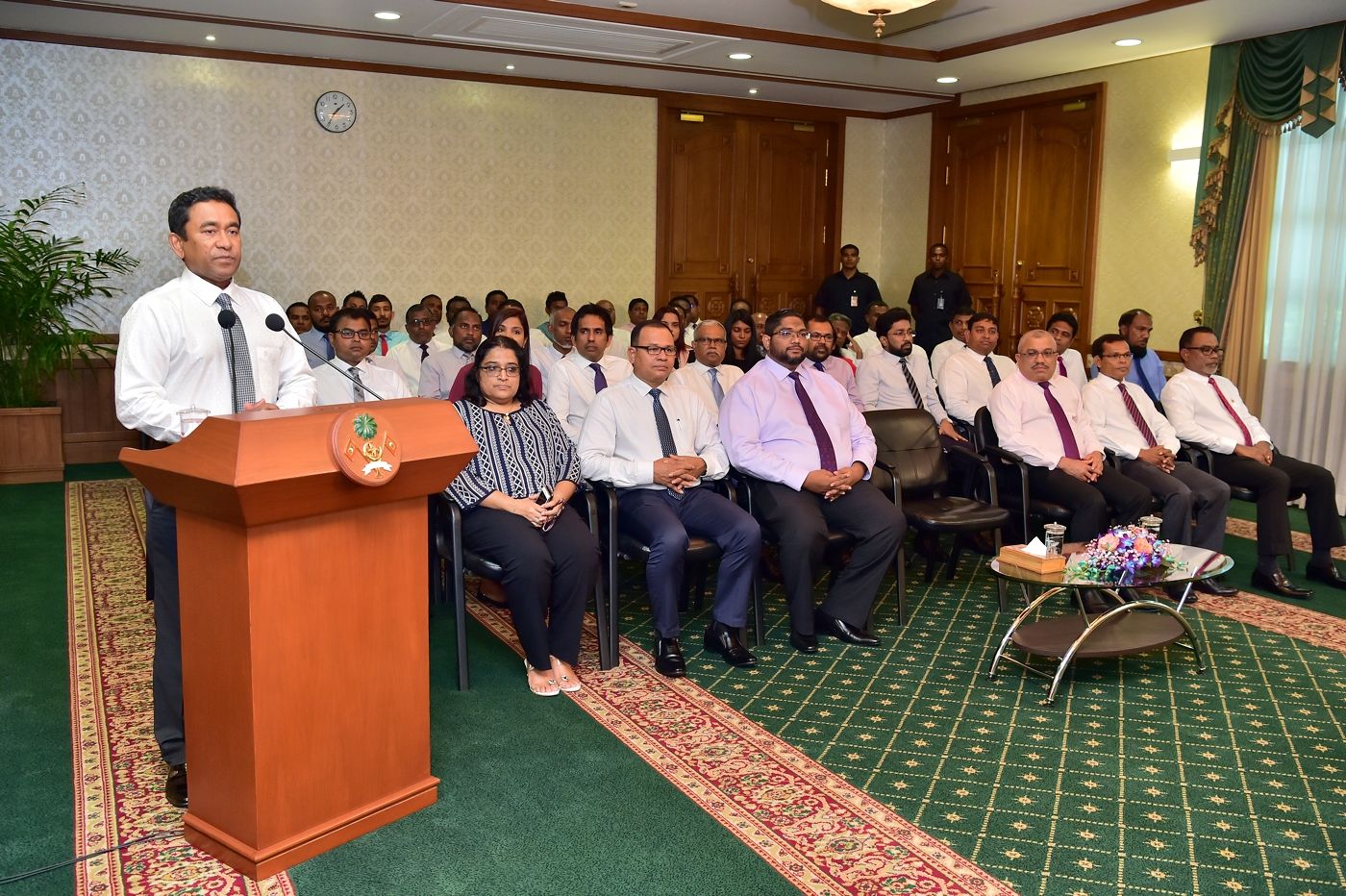Maldives state of emergency lifted
The 45-day emergency rule was ended effective Thursday noon despite “a diminished threat to national security, because the nation can now continue without further losses incurred, and upon the advice of the security services and in an effort to promote normalcy.”

22 Mar 2018, 09:00
President Abdulla Yameen has ended a 45-day state of emergency declared last month in response to a Supreme Court order for the release of his jailed opponents.
The emergency was lifted effective noon on Thursday despite “a diminished threat to national security, because the nation can now continue without further losses incurred, and upon the advice of the security services and in an effort to promote normalcy”, the president’s office said.
The move comes after the criminal court over the past week issued disputed orders to keep high-profile detainees in custody, eleven of whom have been charged with terrorism and bribery over an alleged conspiracy to remove Yameen from office.
The administration insists emergency rule since February 5 was necessary to resolve a “constitutional crisis created by two justices of the Supreme Court who conspired with political actors to violate both the constitution and standard legal norms and practices in order to illegally overthrow a lawful government, and whose actions constituted an imminent threat to national security.”
Become a member
Get full access to our archive and personalise your experience.
Already a member?
Discussion
No comments yet. Be the first to share your thoughts!
No comments yet. Be the first to join the conversation!
Join the Conversation
Sign in to share your thoughts under an alias and take part in the discussion. Independent journalism thrives on open, respectful debate — your voice matters.




